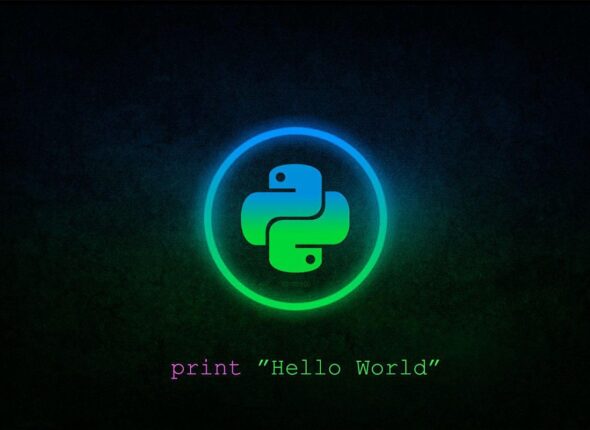Financial Accounting & Taxation
Financial Accounting and Taxation are two interconnected fields within the broader domain of Accounting. Financial accounting is the process of recording, summarizing, and reporting financial transactions of a business entity. Its primary objective is to provide accurate and relevant financial information about the performance, financial position, and cash flows of an organization to external parties such as investors, creditors, regulators, and other stakeholders.
Taxation refers to the system of levying and collecting taxes by government authorities to fund public expenditures and services. Taxation affects individuals, businesses, and other entities, and compliance with tax laws is crucial to avoid penalties and legal consequences.
Both fields are essential for understanding and managing the financial aspects of businesses and individuals.
Scope
The scope of learning accounting and taxation is broad and encompasses various aspects that are essential for individuals pursuing careers in finance, accounting, business, or taxation. Graduates may pursue roles such as financial analyst, auditor, tax consultant, accounting manager, controller, tax preparer, or financial planner, among others.
For aspiring entrepreneurs, knowledge of accounting and taxation is crucial for establishing and managing their businesses. It helps in financial planning, budgeting, forecasting, and tax compliance, thus contributing to the long-term success and sustainability of the venture.Learning taxation equips individuals with the skills to navigate complex tax laws and regulations, optimize tax strategies, and ensure compliance with tax requirements. This knowledge is valuable for individuals and businesses alike in minimizing tax liabilities and avoiding penalties.
Job Profiles in Accounting & Taxation
In the fields of financial accounting and taxation, there are various job profiles available across different industries and sectors. Here are some common job profiles in each area:
- Staff Accountant
- Financial Analyst
- Auditor
- Controller
- Accounting Manager
- Cost Accountant
- Forensic Accountant
- Tax Accountant
- Tax Consultant
- Tax Manager
- International Tax Specialist
- Estate Planning Advisor
- Tax Auditor
These are just a few examples and depending on the specific industry, organization size, and individual expertise, there may be variations or specialized roles within these areas.
Hiring Companies

Industry Trends
The Accounting services global market is expected to reach $735.94 billion in 2025.
57% said technology literacy is the leading additional skill accountants need.
According to Indeed, the average salary of an accountant is $55,459 per year, while the average salary of a designated CPA is $65,289 per year.
Who can learn Accounting and Taxation?
Financial accounting and taxation are disciplines that can be learned by individuals from various backgrounds and with different career aspirations.
- Students pursuing degrees in accounting, finance, business administration, economics, or related fields can learn financial accounting and taxation as part of their academic curriculum.
- Individuals who want to improve their personal finance management skills, understand tax laws and regulations
- Professionals
- Entrepreneurs
- Career Changers
- Investors and Stakeholders
- Consultants and Advisors
Legal Professionals
Key Differentiators
Easy Courses differentiates itself from others in several ways to stand out in the competitive market. Here are some of those points for your ready reference.
Specialization: Focus on this specific industry segment within the field of technology training which makes us an expert in this domain.
High-Quality Content: Develop and deliver high-quality training content that is comprehensive, up-to-date, and relevant to industry dynamics. Invest in experienced instructors, subject matter experts, and instructional designers to ensure the content is engaging, informative, and effective.
Interactive Learning Experience: Offer interactive and engaging learning experiences that go beyond traditional lectures or presentations. Incorporate hands-on exercises, case studies, simulations, and real-world projects to enhance learner engagement and retention.
Flexible Learning Options: Provide flexible learning options to accommodate the diverse needs and preferences of learners. Offer both in-person and online training formats, self-paced and instructor-led courses, as well as blended learning approaches that combine online and offline components.
Personalized Learning Paths: Offer personalized learning paths or customized training programs to cater to the specific goals, skill levels, and learning styles of individual learners or organizations. Provide assessments, pre-tests, or skills gap analyses to tailor the training content and pace to each learner’s needs.
Industry Partnerships: Forge strategic partnerships with industries and technology vendors to enhance the credibility and relevance of the training programs. Collaborate with industry experts or guest speakers to provide insights and perspectives from the field.
Certifications and Credentials: Offer recognized certifications, credentials for completing training programs. Partner with certification bodies or industry leaders to provide certification exams or pathways that add value to the learners’ resumes and career prospects.
Career Services and Support: Provide additional support services such as career counseling, job placement assistance, resume writing workshops, or networking opportunities to help learners transition into new roles or advance their careers after completing the training programs.
Continuous Improvement: Continuously monitor and evaluate the effectiveness of training programs through learner feedback, performance metrics, and industry benchmarks. Regularly update and improve the content, delivery methods, and learning resources to ensure relevance and quality.
Customer-Centric Approach: Focus on building strong relationships with customers and learners by delivering exceptional service, responsiveness, and support throughout the learning journey. Listen to customer feedback, address their concerns promptly, and strive to exceed their expectations.
Modules / Syllabus
- Manual Accounting
- Computerized Accounting in Tally
- Goods & Services Tax (GST)
- Advanced Excel
- Payroll Management
- Income Tax
Duration
3 months on Regular track and 2 months on Accelerated Learning Easy Courses also provides customized course content and corresponding duration on special requests. This is mainly applicable for companies nominating their employees for re-skilling.
Methodology
Easy Courses follow specific training methodologies for Full Stack Development course that caters to diverse learning styles of participants while ensuring comprehension, retention, and practical application of concepts. Here are some methodologies that can be employed:
- Lecture-based Learning
- Hands-on Practice
- Case Studies and Real-world Projects
- Group Work and Collaboration
- Feedback and Assessment
- Mentorship and Coaching
- Continuous Learning and Resources
Placement Support
Easy Courses can support students on placement in several ways to ensure they have a successful and enriching experience:
Easy Courses Provide comprehensive training and preparation sessions before students begin their placements. This could include workshops on resume writing, interview skills, workplace etiquette, and professional communication to help students feel confident and prepared for their roles.
- Placement matching
- Mentorship and coaching
- Regular check-ins and support
- Feedback and evaluation
- Networking opportunities
- Professional development resources
By offering comprehensive support throughout the placement process, Easy Courses help students maximize their learning and growth opportunities, build valuable skills and experiences, and ultimately achieve success in their chosen careers.







